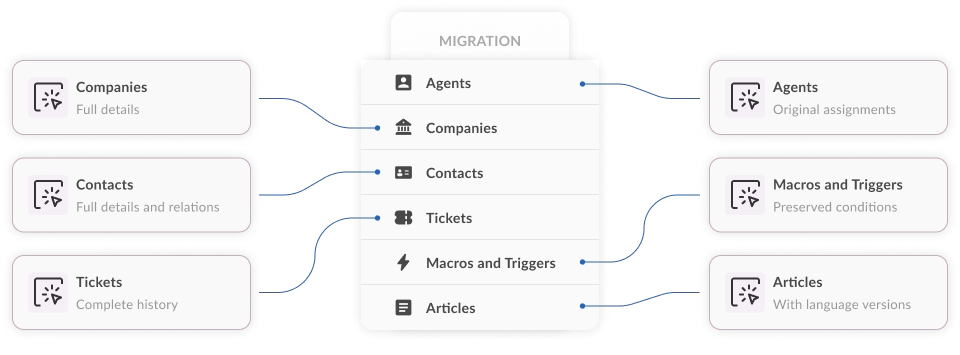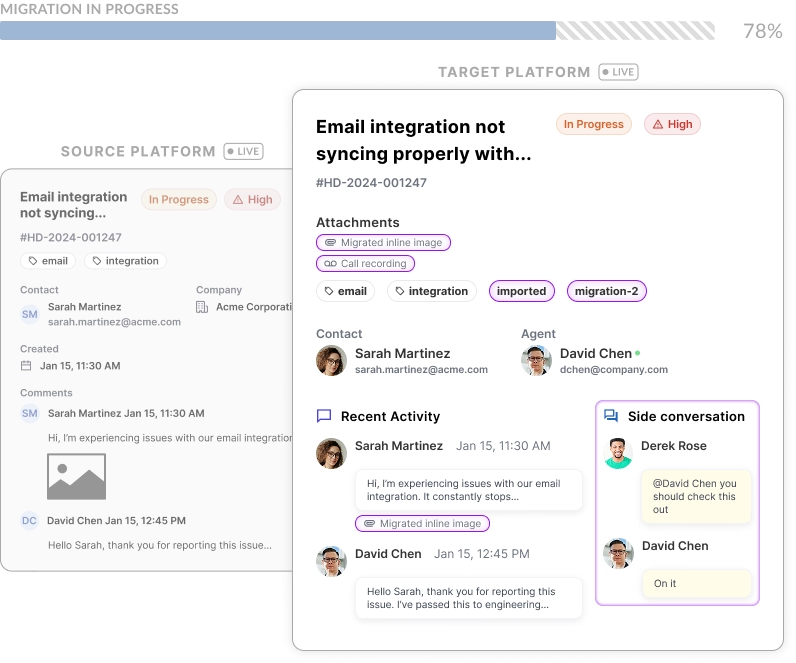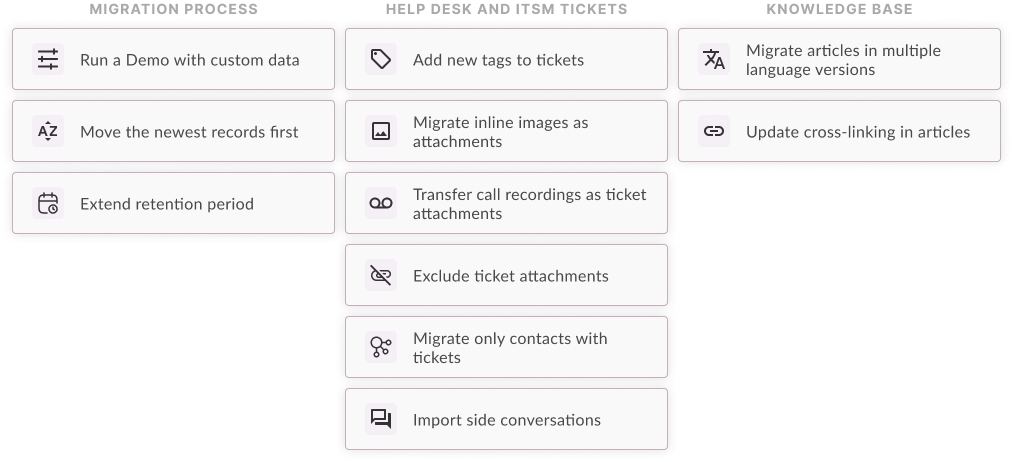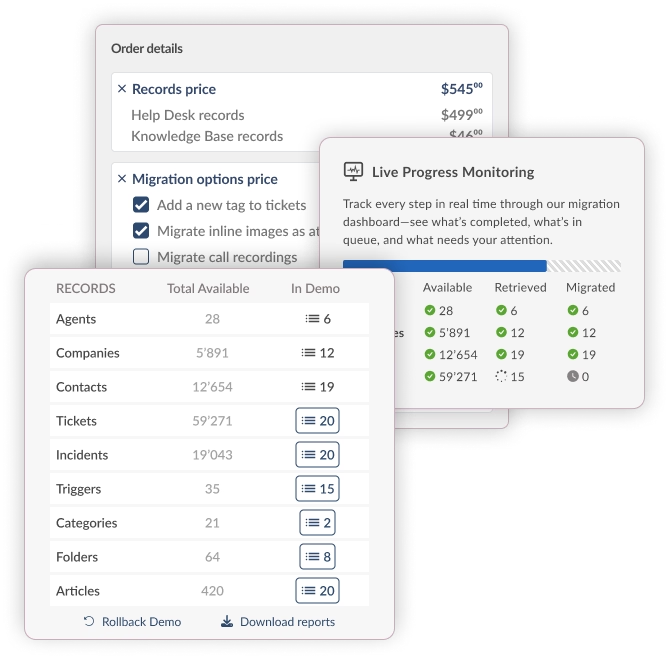Simple, no-code migration
You don’t need technical skills to move your data. Any team member can run the migration through the Migration Wizard — our intuitive, no-code interface built for everyday business users.

No credit card required
Secure data migration. No technical complexity. Zero downtime.





















You don’t need technical skills to move your data. Any team member can run the migration through the Migration Wizard — our intuitive, no-code interface built for everyday business users.

No credit card required
Your support team keeps working without interruptions. Continue handling tickets in your source or target platform while data is transferred safely in the background.

Our service is designed for the tools you use today and the ones you’ll use next. Move data effortlessly between 90+ supported help desk platforms with Help Desk Migration.

Stay fully in control. Schedule the migration anytime, customize it with built-in options, request tailored adjustments, or extend your data retention period.

Start your migration with confidence. Run an unlimited Free Demo to test the process and get a clear, upfront price before moving any data.

Help Desk Migration is more than software. It’s a comprehensive migration solution backed by people that customers across verticals trust.
Need more than data transfer? No problem. Help Desk Migration supports your entire transition, making sure your new help desk is fully set up and your team is ready to use it.

We connect the new help desk to your environment and configure it to match your workflows.
We migrate your data and complete the platform setup so the new tool fits your needs perfectly.
We train your team to work confidently in the new platform, focused on real, everyday tasks.
A secure, predictable migration you can rely on. Built on proven compliance, trusted partners, and consistent recognition from real customers across independent G2 reviews.

Your data stays protected throughout the migration, with practices aligned to GDPR, HIPAA, and SOC 2 standards.
We work with leading help desk platforms and implementation providers to ensure smooth adoption of your new solution.
Help Desk Migration boasts a five-star G2 rating and consistently earns badges based on customer reviews.